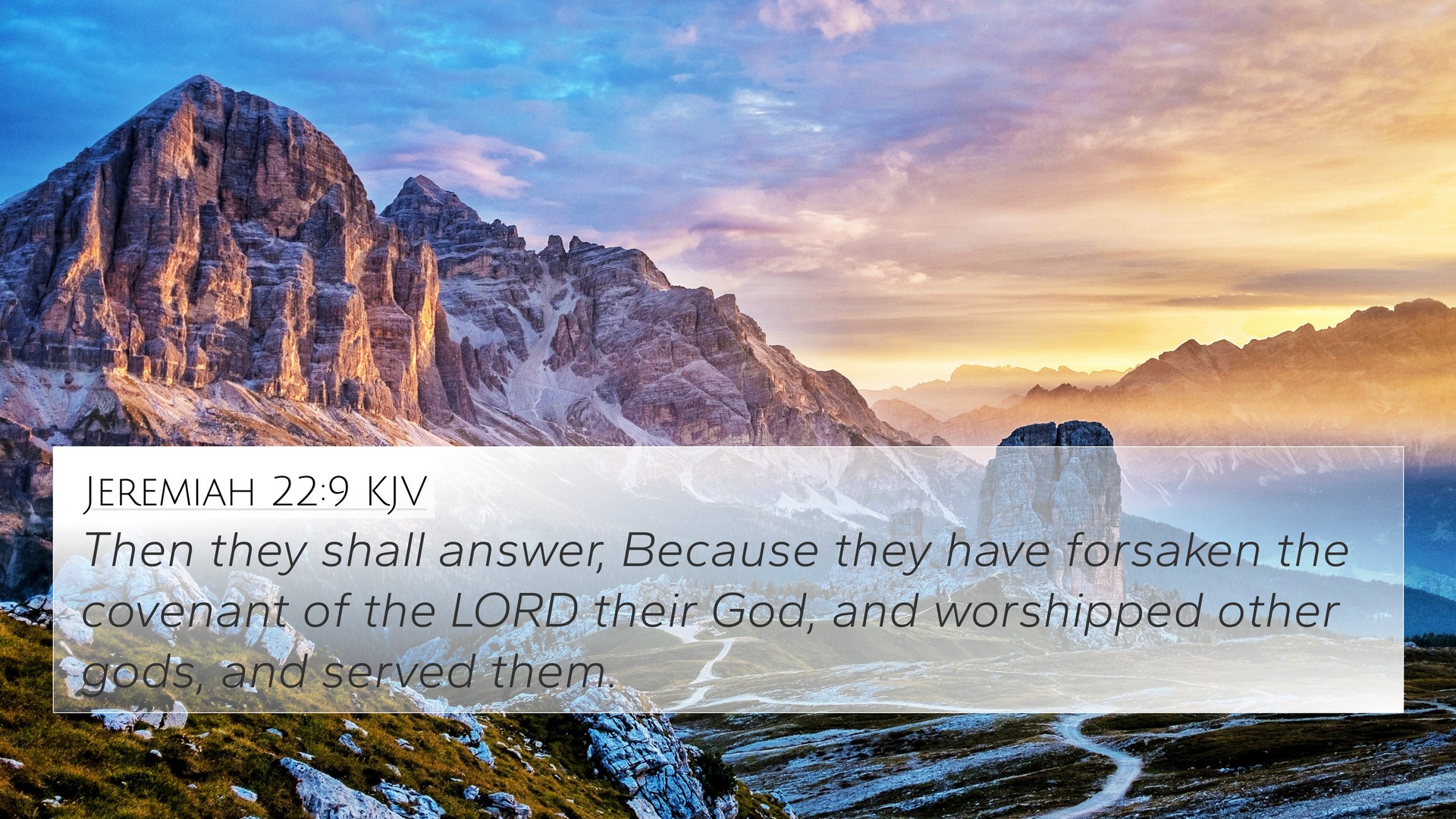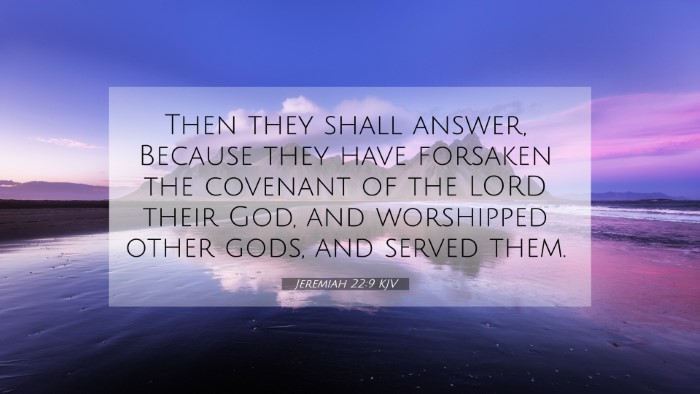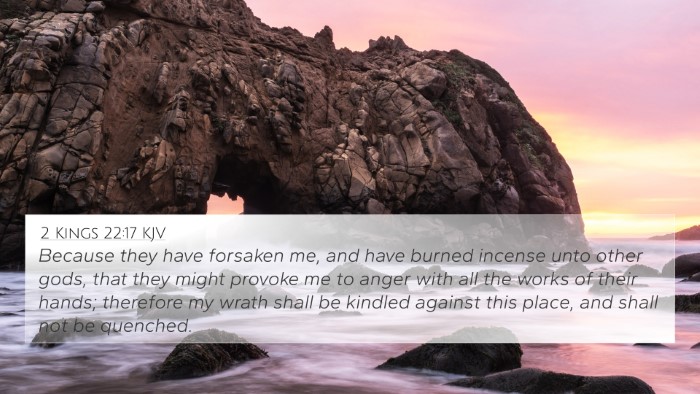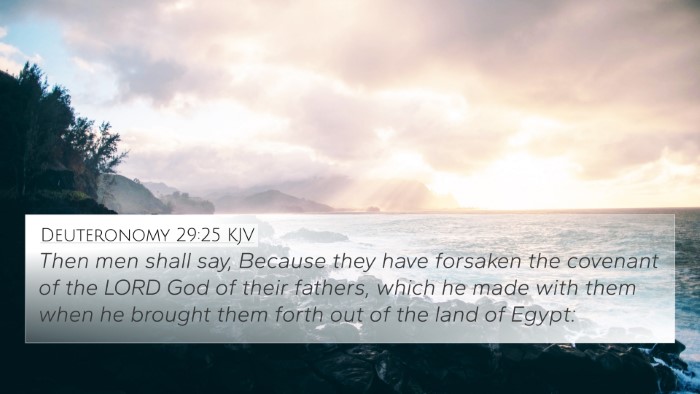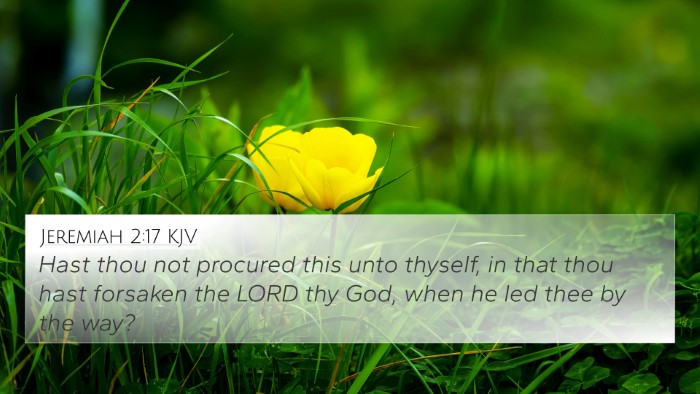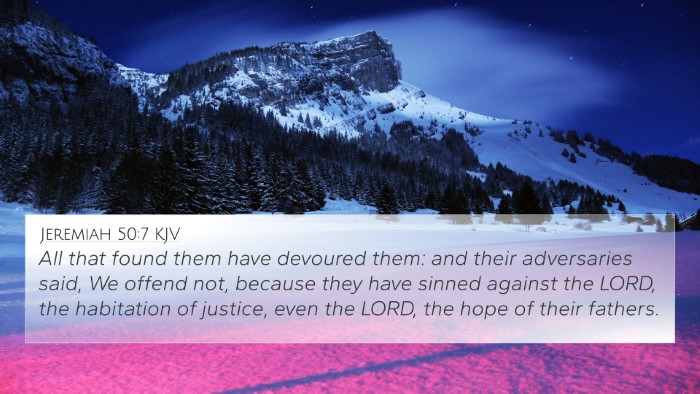Understanding Jeremiah 22:9
Bible Verse: Jeremiah 22:9 states: "Then they shall answer, 'Because they have forsaken the covenant of the Lord their God and worshiped other gods and served them.'"
Meaning and Analysis
This verse forms a critical part of Jeremiah's oracle against Judah's king and outlines the consequences of turning away from God’s covenant. The text captures both a cause and effect, emphasizing the gravity of abandoning one's spiritual commitments.
Thematic Insights
Jeremiah 22:9 underscores several themes, including:
- Covenant Faithfulness: The importance of adhering to the covenant made with God, highlighting the national identity entwined with divine relationship.
- Idolatry: A serious offense against God; the act of worshipping other deities, reflecting a broader societal collapse.
- Consequences of Disobedience: The repercussions of forsaking God's commandments, leading to national judgment.
Commentary Overview
Insights from renowned scholars provide a deeper understanding:
Matthew Henry's Commentary
Henry emphasizes the rebellion against God and the resultant turmoil it brings to society. He describes how forsaking the covenant is an act that invites divine displeasure and leads to catastrophe.
Albert Barnes' Commentary
Barnes points out that the prophetic words are both a warning and a declaration of the inevitable consequences. He addresses how true worship is foundational to a nation’s integrity and stability.
Adam Clarke's Commentary
Clarke elaborates that the covenant embodies the relationship between God and His people, emphasizing the societal obligations that come with it. He explains that worshiping idols not only signifies personal failure but also national apostasy.
Cross-References
This verse connects significantly with other scriptures, providing a comprehensive understanding of God's message about covenant faithfulness and consequences:
- Deuteronomy 28:15: Outlines the curses for disobedience to covenant commands.
- 2 Kings 17:7-8: Discusses Israel’s disobedience and the resulting downfall.
- Isaiah 1:4: Speaks to the sinful nation, calling for repentance and turning back to God.
- Jeremiah 11:10: Reports on the breaking of the covenant and the implications it carries for Israel.
- Ezekiel 18:30: Calls the people to repentance and turning away from idols to be saved from judgment.
- Hosea 4:6: Highlights the destruction due to lack of knowledge and refusal to uphold God’s laws.
- Revelation 2:5: Encourages the church to remember and repent to avoid judgment for forsaking their first love.
- Romans 1:23: Examines the apostasy of humanity and its consequences for worshipping created things instead of the Creator.
- Galatians 6:7: A reminder that one reaps what one sows, particularly regarding spiritual actions.
- Ephesians 5:5: Warns against idolatry and the fate of those who do not inherit the kingdom of God.
How to Use This Understanding
For those exploring the Word of God, understanding Jeremiah 22:9 can be an essential part of studying the overarching themes of obedience, worship, and the consequences of turning away from God.
- Explore Cross-References: Utilize a Bible concordance or Bible cross-reference guide to deepen your study of interrelated themes.
- Identify Connections: Recognize the parallels between this text and other scriptures that discuss covenant faithfulness.
- Comparative Analysis: Engage in a comparative Bible verse analysis to draw insights about human nature and God's expectations across both Testaments.
- Thematic Studies: Examine related verses to form a more profound understanding of thematic Bible verse connections, especially concerning idolatry and divine judgment.
Conclusion
Jeremiah 22:9 serves as a sobering reminder of the importance of remaining faithful to the covenant with God. By studying similar scriptures, believers can cultivate a deeper understanding of the consequences of disobedience and the call to worship God alone.
